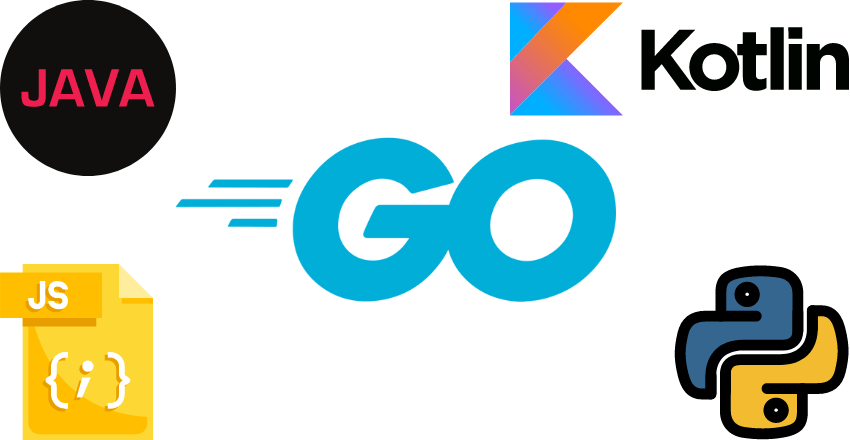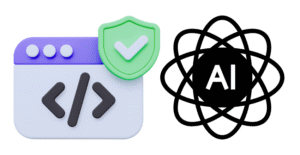Most people believe that JavaScript is the only language suitable for web development.
In reality, this belief stems from its prevalence and not necessarily its superiority.
Having built countless web applications in various languages over the past decade, I can tell you there’s more to web development than just JavaScript. Here’s why:
1. JavaScript
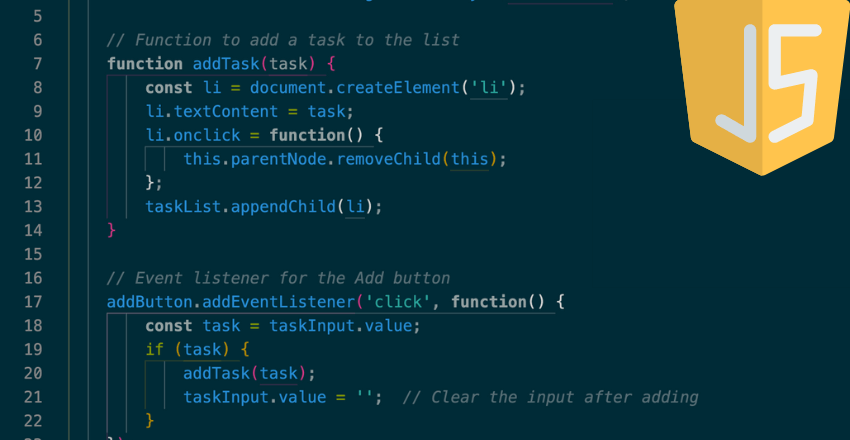
JavaScript is a high-level programming language that is one of the core technologies of the World Wide Web. It is used as a client-side programming language by 97.8 percent of all websites. JavaScript was originally used only to develop web browsers, but it is now used for server-side website deployments and non-web browser applications as well.
JavaScript is an essential programming language for web development, powering interactivity and dynamic content on websites. It is primarily used for front-end development – the process of developing the interface that users interact with. JavaScript has a massive presence on the web, with over 95% of websites utilizing it. Its versatility extends beyond the front end, as JavaScript can also be used for server-side programming.
Advantages of JavaScript
- Speed: JavaScript runs immediately within a web browser, reducing load time.
- Ease of Learning: Not only is JavaScript a relatively easy language for programmers to learn, but its popularity also makes it easy to recognize and implement.
- Interactivity: JavaScript adds noticeable and responsive elements to websites such as zooming capabilities and dropdown menus. These elements enhance the user’s experience and make JavaScript an in-demand addition to website development.
Popularity
According to a study by Statista, JavaScript is the most popular language to learn. It is well-known for its ability to make websites come alive by adding elements such as animations, dropdown menus, and color-changing buttons.
JavaScript, in addition to HTML and CSS, is the best programming language to learn for front-end web development. 97.8% of all websites use JavaScript for their client-side scripting, making it the most popular language for the cause.
Use Cases
JavaScript is not just limited to web development. It is also commonly used for game development and mobile applications. Its ability to add dynamic elements to web pages, such as animated graphics, clickable buttons, and mouseover effects, makes it a versatile tool for developers.
2. Python
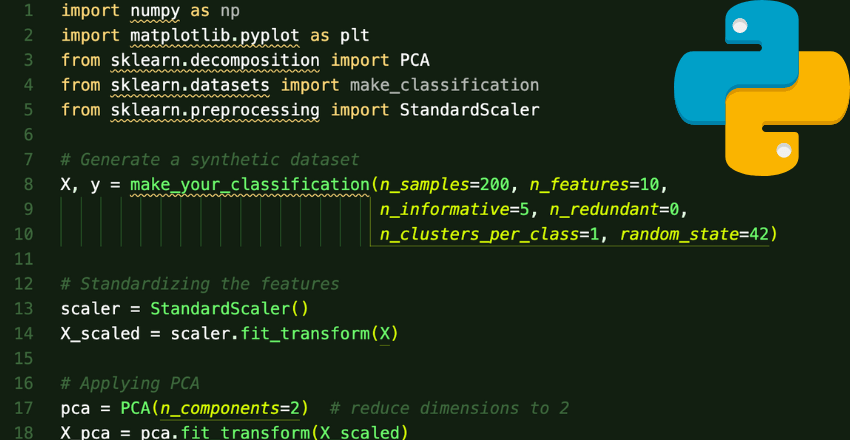
My personal favorite, Python is incredibly versatile and user-friendly, making it ideal for beginners. Its applications range from backend development to data science and machine learning. If you’re inclined towards data manipulation, automation, or AI, Python is your go-to language.
Advantages
Python is perhaps the most user-friendly programming language of any on this list. It’s often said that Python’s syntax is clear, intuitive, and almost English-like, which makes it a popular choice for beginners. The extensive, robust library is an advantage for Python over other programming languages. It consists of multiple packages and modules to enhance the development process.
Disadvantages
Despite its many strengths, Python is not without its drawbacks. One of the main issues is its performance; Python is generally slower than compiled languages like C++ or Java. Additionally, Python’s dynamic typing can lead to runtime errors that are sometimes difficult to debug.
Use Cases
Python’s versatility shines through in its wide range of applications:
- Web Development: Frameworks like Django and Flask make it easy to build robust web applications.
- Data Science: Libraries such as Pandas, NumPy, and SciPy are essential tools for data analysis.
- Machine Learning: TensorFlow and PyTorch are popular libraries for building machine learning models.
- Automation: Python scripts can automate repetitive tasks, saving time and effort.
Python is a dynamic object-oriented programming language that combines data structures with easy-to-learn syntax. Its applications vary from simple functions like powering a moderator bot on Reddit to complex functions such as financial data analysis and machine learning.
3. Go
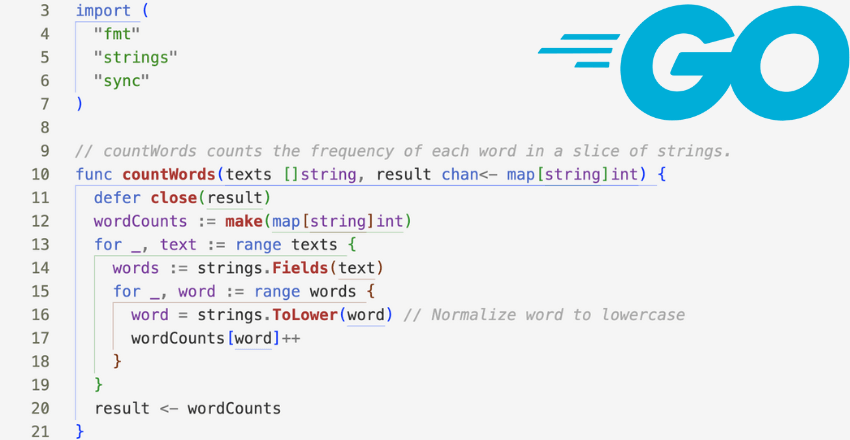
Go, also known as Golang, is a modern language known for its performance and simplicity. It was created to meet the needs of programmers working on large projects and has gained popularity among many large IT companies, including Google, Uber, Twitch, and Dropbox. Go combines the performance of languages like C++ with the simplicity of Python or JavaScript.
Key Features
- Concurrency: One of Go’s best features, enabling programmers to work with multicore CPUs and a massive codebase.
- Performance: Excellent performance makes it ideal for creating algorithms, web servers, and data pipelines.
- Simplicity: Despite its power, Go has a simple and modern structure, making it easier to learn and use.
Use Cases
Go is perfect for backend services and infrastructure projects. It’s also ideal for building web servers, data pipelines, and even machine-learning packages. Its concurrency features make it particularly well-suited for developing APIs and web applications.
Industry Adoption
Many large IT companies have adopted Go due to its performance and simplicity. Some of the notable companies using Go include:
- Uber
- Twitch
- Dropbox
Salary Potential
Go developers are in high demand and can command impressive salaries. Here’s a quick look at the average annual salary for Go developers:
| Position | Average Salary |
|---|---|
| Go Developer | $141,654 |
| Senior Go Developer | Up to $261,000 |
Go is not just a language; it’s a tool that empowers developers to build efficient, scalable, and high-performance applications with ease.
4. Java
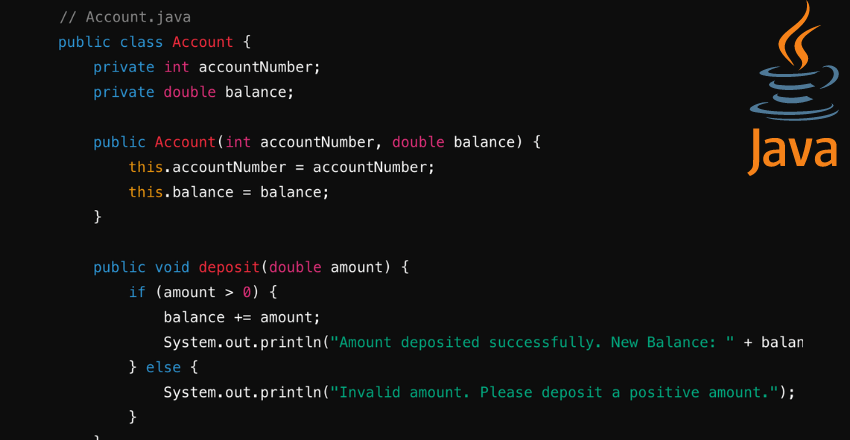
Java is a proprietary programming language owned by Oracle. It’s a high-level, general-purpose programming language, enabling coders to create all sorts of applications with ease. Java makes writing, compiling, and debugging programming easy. It helps to create reusable code and modular programs. Java is a class-based, object-oriented language.
Features of Java
- Open source, Object-Oriented language.
- Cross-platform compatible.
- Stability, Strong memory management, and automatic garbage collection.
- High performance, top-notch security.
- Platform independent because of JVM feature.
- 1M+ repositories on GitHub.
- Companies working on Java: HCL, Adobe, Intuit, Qualcomm, Flipkart, Amazon.
Popularity and Use Cases
Java is widely known to be a “write once, run anywhere” coding language. Java code can run smoothly in any operating system regardless of where it was written in the first place. From software engineering to back-end web development, data science, and big data, Java can do it all. Furthermore, it’s often used in financial services thanks to its robust security.
Industry Adoption
Java is a robust and widely adopted programming language known for its ability to build enterprise-level applications. It has gained popularity in the corporate world, for example, in financial institutions and e-commerce organizations. Java’s ability to handle complex systems and its extensive libraries and frameworks make it an ideal choice for large-scale projects. Learning Java opens up opportunities in industries such as banking, e-commerce, and more.
Java is one of the best programming languages due to its versatility and widespread use in various industries.
5. Kotlin
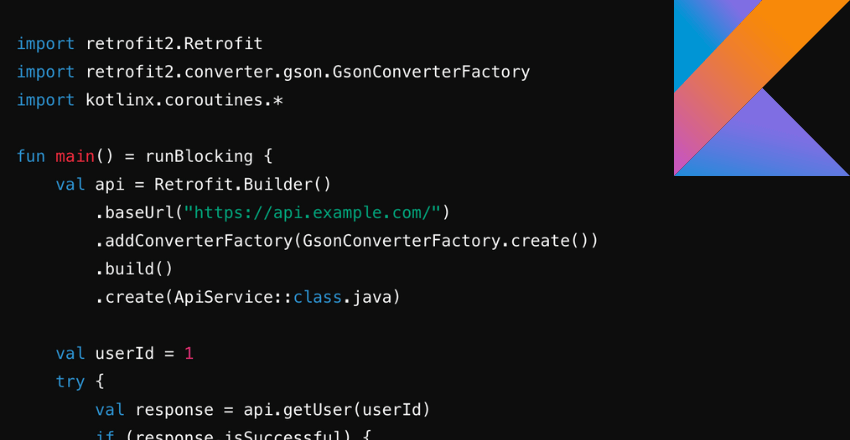
Kotlin is a general-purpose programming language originally developed and unveiled as Project Kotlin by JetBrains in 2011. The first version was officially released in 2016. It is interoperable with Java and supports functional programming languages. Kotlin is a programming language that makes coding concise, cross-platform, and fun. It is Google’s preferred language for Android app development.
Features of Kotlin
- Object-oriented and cross-platform programming language.
- Secure and flexible.
- Easy to debug.
- 79K+ repositories on GitHub.
Companies Using Kotlin
- Airtel
- Lenskart
- Basecamp
- Slack
- Trello
- Netflix
Popularity and Usage
In a survey of language popularity by StackOverflow, Kotlin was loved by 60.77% of users, and is often touted as the next generation for app design. Kotlin is used extensively for Android apps, web applications, desktop applications, and server-side application development. Some companies using Kotlin as their programming language include Coursera, Pinterest, and PostMates among many others.
Kotlin developers earn an average of $136,000 a year, with the potential to earn up to $171,500.
Downsides
- Lots of new vocabulary to learn; a higher-level language.
- Moderately difficult to learn.
Degree of Use
- Widely used; highly applicable.
Annual Salary Projection
| Role | Average Salary |
|---|---|
| Kotlin Developer | $109,225 |
| Senior Kotlin Developer | $136,000 – $171,500 |
Wrapping up
Choosing the best programming language to learn can be a daunting task given the plethora of options available. However, the decision ultimately hinges on your career goals, the industry you wish to enter, and the specific projects you aim to undertake.
The languages highlighted in this article—JavaScript, Python, Go, Java, and Kotlin—are among the top contenders for 2024, each offering unique advantages and opportunities. Whether you’re interested in web development, mobile applications, or systems programming, there’s a language on this list that can meet your needs. As technology continues to evolve, staying updated with the latest trends and continuously learning will be key to your success in the ever-changing landscape of programming.
Frequently Asked Questions
What are the best programming languages to learn in 2024?
The best programming languages to learn in 2024 include JavaScript, Python, Go, Java, and Kotlin.
Why is JavaScript considered one of the best programming languages?
JavaScript is considered one of the best programming languages due to its versatility, wide usage in web development, and strong community support.
Is Python a good language for beginners?
Yes, Python is an excellent language for beginners because of its simple and readable syntax, as well as its wide range of applications.
What makes Go a popular choice for developers?
Go is popular among developers for its simplicity, efficiency, and strong performance, especially in concurrent programming.
Why should I learn Java?
You should learn Java because it is a widely-used, versatile language with strong performance and a large ecosystem, making it ideal for building various types of applications.
What are the advantages of using Kotlin?
Kotlin offers advantages such as full interoperability with Java, concise syntax, and enhanced safety features, making it a popular choice for Android development.
External Sources
https://octoverse.github.com/2020/


